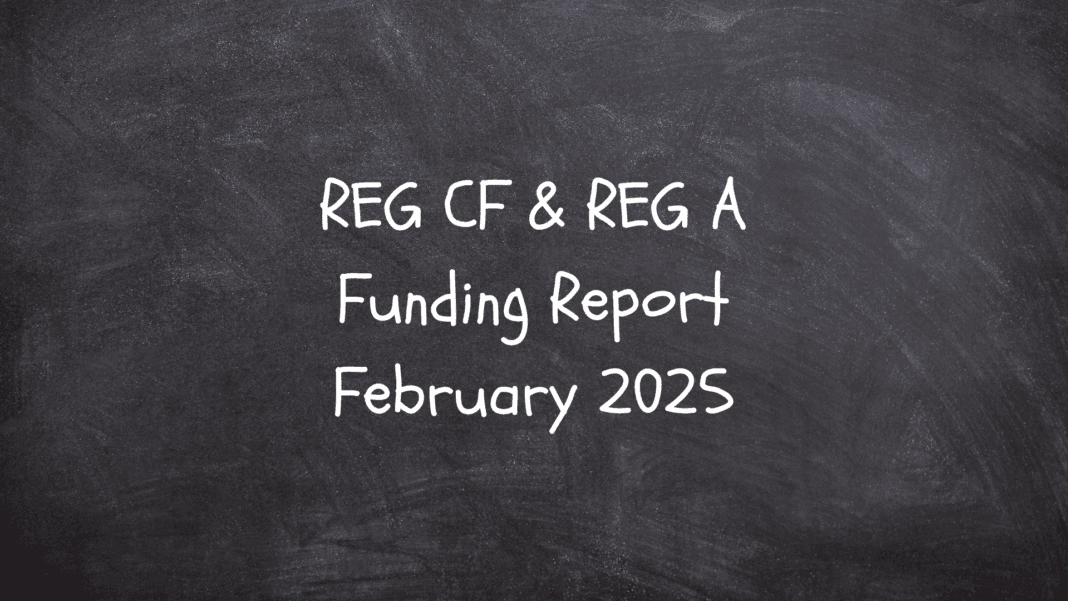The US crowdfunding industry is in serious trouble. While industry insiders continue to spew optimistic narratives about democratizing capital, the hard numbers tell a different story, one of dwindling investor confidence, a failing Regulation A (Reg A) market, and an increasing number of startup casualties.
Reg A’s Collapse: An Industry in Decline
Regulation A was meant to be the gateway for startups to raise substantial capital from retail investors without the burdens of an IPO. However, the current data exposes a stark failure.
Active Reg A Raises Have Tanked

According to the latest statistics, there were only 21 active Reg A raises in January 2025, exactly the same as the previous month, with December traditionally known as a quiet month, and barely an improvement from 19 in January 2024. This is an obvious indicator of stagnation. Even worse, when compared to the peak periods of 2021-2022, when the industry was experiencing a surge of over 50 active raises per month, the sharp decline cannot be ignored.
Industry advocates will argue that quality over quantity is the key, but if fewer startups are turning to Reg A, that suggests an underlying structural issue, either companies don’t see Reg A as a viable funding path, or investors are no longer biting.
Reg A Amounts Raised. A Total Flop

The numbers are even worse when it comes to actual funds raised. In January 2025, a total of $58.3 million was raised via Reg A. Sounds impressive? Not when you consider that this represents a 252.9% increase from December 2024’s dismal $16.5 million.
However, a month-over-month spike doesn’t mean long-term health. The fact that 2024’s numbers were so low in the first place is the real problem. Even more concerning is the average amount raised per campaign: $2.8 million in January 2025 which is far from the ambitious $75 million cap that Reg A was supposed to enable.
How many companies actually reach that $75M cap? Practically none. To my knowledge, only a single issuer, EnergyX (which was hosted through Dealmaker) has reached this amount, with the result promoted widely. A sign to me that there is little else for the industry to shout about. Despite this, during yesterday’s House Financial Services Committee hearing, Dealmaker’s Rebecca Kacaba proposed removing the Reg A+ funding limit entirely, making it unlimited. I vehemently oppose this recommendation. If barely any companies can hit the current cap, removing the ceiling will do nothing but further expose retail investors to massive risks.
Reg CF: Still Alive, But Barely Breathing
The situation isn’t much better for Regulation Crowdfunding (Reg CF). While the Reg CF market has been more active in sheer volume, it’s suffering from similar struggles.
Reg CF’s Dwindling Raise Amounts

Total Reg CF capital raised in January 2025 was $29.2 million, up 32.2% from December 2024’s $22.1 million. Again, this sounds like an improvement, but in reality, it’s a reflection of the volatile and inconsistent performance of this market. Even with a 53.3% year-over-year increase from January 2024 ($19M), the numbers are still relatively weak when compared to the crowdfunding hype from years prior.
The most damning stat? The average amount raised per Reg CF campaign in January 2025 was a meager $54,000, barely enough to keep a startup afloat. In other words, companies are raising small amounts of money that won’t sustain operations for long, leading to a brutal cycle of shutdowns.
During the same House Financial Services Committee hearing, Rebecca Kacaba also proposed increasing the Reg CF funding cap to $10M. While I am hesitant, I do agree with this recommendation, as it provides more flexibility for startups to secure meaningful funding without resorting to riskier and more expensive Reg A+ offerings.
The Crowdfunding Graveyard: Startups Are Dropping Like Flies
The data on failed Reg CF and Reg A companies is staggering. In 2024 alone, dozens of previously funded companies have gone under, leaving investors with nothing. Here are just a few examples from the growing list of casualties:
Blokable (Dec 31, 2024) – A housing development startup that ran out of steam.
Mainvest (Jun 14, 2024) – A crowdfunding platform, ironically, couldn’t survive its own industry.
Lost Spirits Distillery (Apr 29, 2024) – A once-promising venture in craft spirits, now gone.
Green Island EV Corp (Apr 30, 2024) – An EV startup that failed to stay afloat in a competitive market.
The list goes on and on. These weren’t just “bad ideas”—many were highly promising ventures that simply could not deliver sustainable growth, leaving retail investors with massive losses. You can read more about REG CF in a prior article: “REG CF – Why Is Nobody Talking About This?“
The House Financial Services Hearing: Will Real Change Happen?
Yesterday’s House Financial Services Committee hearing on “The Future of American Capital” was a critical moment for the industry. Rebecca Kacaba represented crowdfunding and, despite some visible nervousness, did a solid job presenting the case for reform. But what was missing? The brutal honesty that the industry is hanging by a thread.
My key thoughts on the hearing:
Reg A Needs No Cap Increase – The $75M cap is meaningless if almost no companies can hit it. Making the cap unlimited is a reckless and unrealistic proposal.
Retail Investors Need Protection – Too many companies are failing, and investors are left holding the bag.
Over-Regulation vs. Accountability – Striking a balance between reducing regulatory burdens and ensuring transparency is critical. REG CF needs a review to simplify and lesson the burden on Startups.
More Focus on Education – Through government supported education initiatives.
The Reality Check: Crowdfunding Needs to Evolve or Die
The US crowdfunding industry is in serious trouble. The dream of retail investors fueling innovative startups has turned into a nightmare of failed businesses and lost capital. Reg A and Reg CF were supposed to be alternative funding mechanisms that rivaled VC and IPOs. Instead, they’ve become a high-risk gamble with poor returns.
It’s time for the industry to take an honest look in the mirror. Either crowdfunding platforms, regulators, and industry leaders address these harsh realities head-on, or we’ll be writing the obituary for the entire sector in the near future.
All images sourced from: Kingscrowd



